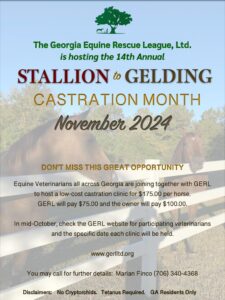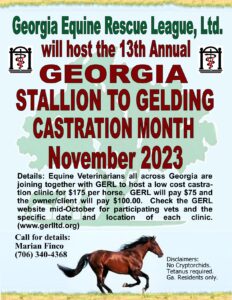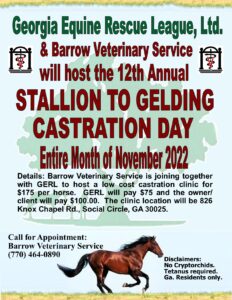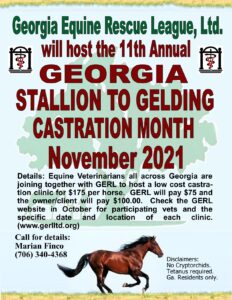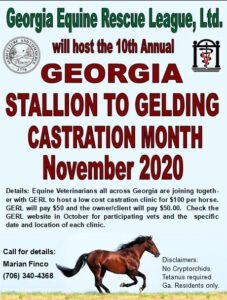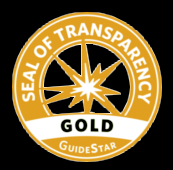Stallion To Gelding Castration Program
Mission Statement:
To end the suffering of innocent horses by reducing the number of unwanted births.
Thousands of horses are born each year as a result of thoughtlessness on the part of mare and stallion owners. It is the plea of GERL for these owners to consider very carefully the future of resulting offspring before permitting their horses to reproduce. Equine rescue organizations across the nation are overwhelmed by the growing number of unwanted and neglected horses.
Our organization believes that the first step in eliminating this problem is to reduce the number of foals produced each year. We strongly urge owners of equine of breeding age to geld their stallions and resist breeding their mares unless they intend to keep and use the resulting progeny, or they have a reasonable expectation that the foal produced will be a marketable animal.
In an effort to reduce the number of stallions and to encourage the use of only top quality animals for breeding purposes, GERL has initiated our Stallion to Gelding Program. As an incentive to stallion owners, we will pay $75 toward the cost of gelding any male equine in Georgia for individuals who require financial assistance. Two horse limit per owner, please. Owners may use the veterinarian of their choice and must take full responsibility for post operative care.
Applications must be mailed and approved by GERL before arrangements are made with attending veterinarians..
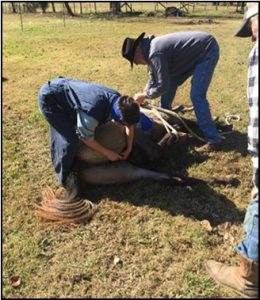 The Unwanted Horse Coalition’s (UHC) recent Study on Contributing Factors Surrounding the Unwanted Horse Issue is the first of its kind to assess the causes and magnitude of the unwanted horse population in the United States.
The Unwanted Horse Coalition’s (UHC) recent Study on Contributing Factors Surrounding the Unwanted Horse Issue is the first of its kind to assess the causes and magnitude of the unwanted horse population in the United States.
Results indicate that the problem of unwanted horses is perceived to be growing on many fronts. More than 90% of participants believe the number of unwanted horses, as well as those neglected and abused, is increasing. Almost all participants (87%) indicate that in the past year, the issue of unwanted horses has become “a big problem,” compared with only 22% who said the problem was important three years ago. Respondents also report that the number of horses being euthanized is increasing.
In 2010 GERL formed a partnership with area equine veterinarians. Not only to provide low cost castration clinics, but to educate the public on the problems of over-breeding. The second Sat of November was established as Stallions to Geldings Day and veterinarians throughout the state would volunteer their time, staff and expertise to host clinics where horses could be castrated for only $100.00. GERL would pay $50.00 and the horses’ owner would be responsible for the remaining $50.00. Usual cost for a castration is from $200.00/$500.00.
Over the past couple years, it has become difficult for many of our veterinarians to hold their clinics on a designated day and have chosen a different date and in some cases a week or even a month to host their clinics for the $100.00 fee.
I’d like to take the opportunity to thank the thirteen veterinarians that have so generously given of their time, expertise and staff to make our 2019 Stallion to Gelding Month a huge success. To date we have 80 less stallions in Georgia. That brings our total number of horses castrated through our programs to 1,106 stallions since 2010! There are a couple of veterinarians that have not completed their castrations for 2019 so we expect this total to increase.
If any of these fine doctors happen to be your veterinarian, please give them a big GERL welcome and let them know how much you appreciate them and what they’re doing to help with the problems of the unwanted horse.
Amicalola Veterinary Services – Ava K. Griner Talmage, DVM
Barnesville Animal Clinic – Mark Korb, DVM
Barrow Veterinary Service – Robin Barrow, DVM
Budget Vet – Lois Lassiter, DVM
Countryside Veterinary Service – Dan Carter, DVM
Fulton Equine – Melissa Fulton, DVM
King Equine Services – Logan King, DVM
Maggie’s Menagerie – Eric Sjoberg, DVM
New South Equine Medicine – Ross Kittrell, DVM
Piedmont Equine Associates – Daniel Pike, DVM and John Elliott, DVM
Royston Animal Hospital – Wanda Thompson, DVM
Southern Crescent Equine Services – Jason McClendon, DVM
Philema Vet Service – Trey Morrison, DVM
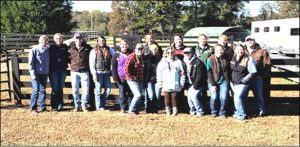 The Georgia Equine industry is a healthy and growing segment of our states economy. There are an estimated 74,000 horses in Georgia today. While the breeding and care of horses has and economic impact of $750 million each year there is a never -ending overpopulation of unwanted, neglected and abused horses in the state. Backyard bred horses are very cheap to buy, but often times a great deal more expensive than these owners anticipated. Very often these owners do not have the financial resources to pay for feed, vet care and a decent place to keep their horses. As a result, hundreds are being starved, neglected or purchased by kill buyers to ship to the inhumane slaughter houses in Canada and Mexico. In 2010 GERL formed a partnership with area equine veterinarians. Not only to provide low cost castration clinics, but to educate the public on the problems of over-breeding. The second Sat of November was established as Stallions to Geldings Day and veterinarians throughout the state would volunteer their time, staff and expertise to host clinics where horses could be castrated for only $100.00. GERL would pay $50.00 and the horses’ owner would be responsible for the remaining $50.00. Usual cost for a castration is from $200.00/$500.00.Over the past couple years, it has become difficult for many of our veterinarians to hold their clinics on a designated day and have chosen a different date and in some cases a week or even a month to host their clinics for the $100.00 fee. I’d like to take the opportunity to thank the fourteen veterinarians that have so generously given of their time, expertise and staff to make 2018 Stallions to Geldings Month a huge success. To date we have 67 less stallions in Georgia. Two veterinarians have not completed their castrations. The first twelve of these veterinarians have volunteered since the beginning of the program, eight years ago. We welcomed Dr Trey Morrison of Philema Vet Service in Leesburg in 2017 and he’s back again, this year. In fact, he is scheduled to castrate the entire month of December! A huge welcome to our new veterinarians participating for the first time this year: Dr Jason McClendon with Southern Crescent Equine Services in Newnan and Dr. Lois Lassiter of Budget Vets in Conyers.
The Georgia Equine industry is a healthy and growing segment of our states economy. There are an estimated 74,000 horses in Georgia today. While the breeding and care of horses has and economic impact of $750 million each year there is a never -ending overpopulation of unwanted, neglected and abused horses in the state. Backyard bred horses are very cheap to buy, but often times a great deal more expensive than these owners anticipated. Very often these owners do not have the financial resources to pay for feed, vet care and a decent place to keep their horses. As a result, hundreds are being starved, neglected or purchased by kill buyers to ship to the inhumane slaughter houses in Canada and Mexico. In 2010 GERL formed a partnership with area equine veterinarians. Not only to provide low cost castration clinics, but to educate the public on the problems of over-breeding. The second Sat of November was established as Stallions to Geldings Day and veterinarians throughout the state would volunteer their time, staff and expertise to host clinics where horses could be castrated for only $100.00. GERL would pay $50.00 and the horses’ owner would be responsible for the remaining $50.00. Usual cost for a castration is from $200.00/$500.00.Over the past couple years, it has become difficult for many of our veterinarians to hold their clinics on a designated day and have chosen a different date and in some cases a week or even a month to host their clinics for the $100.00 fee. I’d like to take the opportunity to thank the fourteen veterinarians that have so generously given of their time, expertise and staff to make 2018 Stallions to Geldings Month a huge success. To date we have 67 less stallions in Georgia. Two veterinarians have not completed their castrations. The first twelve of these veterinarians have volunteered since the beginning of the program, eight years ago. We welcomed Dr Trey Morrison of Philema Vet Service in Leesburg in 2017 and he’s back again, this year. In fact, he is scheduled to castrate the entire month of December! A huge welcome to our new veterinarians participating for the first time this year: Dr Jason McClendon with Southern Crescent Equine Services in Newnan and Dr. Lois Lassiter of Budget Vets in Conyers.
Amicalola Veterinary Services – Ava K. Griner Talmage, DVM
Barnesville Animal Clinic – Mark Korb, DVM
Barrow Veterinary Service – Robin Barrow, DVM
Big Springs Equine Services – Rhonda Veit, DVM
Countryside Veterinary Service – Dan Carter, DVM
Fulton Equine – Melissa Fulton, DVM
King Equine Services – Logan King, DVM
Maggie’s Menagerie – Eric Sjoberg, DVM
New South Equine Medicine – Ross Kittrell, DVM
Piedmont Equine Associates – Daniel Pike, DVM and John Elliott, DVM
Royston Animal Hospital – Wanda Thompson, DVM
Southern Crescent Equine Services – Jason McClendon, DVM
Philema Vet Service – Trey Morrison, DVM Budget Vet – Lois Lassiter, DVM
If any of these fine doctors happen to be your veterinarian, please give them a big GERL welcome and let them know how much you appreciate them and what they’re doing to help with the problems of the unwanted horse. Note: Not all the equine veterinarians who participated in this year have turned in their totals at the time of this writing, but we are currently reflecting a total of 67 stallions that have already been castrated through GERL’s 2018 Stallion to Gelding Castration Days. That brings our grand total number of horses castrated through our programs to almost 1,000 stallions since 2010!
2017 Stallion to Gelding Castration Days – Another Great Year
by Marian Finco
As most of you are aware, the overpopulation of horses in this country has reached epidemic proportions since the slaughter plants were closed in 2007. Yet, according to the data collected by the ASPCA, 150,000 American horses are trucked across US borders annually to Mexico and Canada to be slaughtered for human consumption. Contrary to popular belief, these horses are not old, blind, crippled horses. They are babies!
In 2010, GERLs forward-thinking leader, Patty Livingston, wrote a plan for the state of Georgia to try to reduce the number of unwanted and neglected horses and to attempt to educate the public and horse owners into taking responsibility for their part of the problem of careless breeding and owning more horses than they can afford to properly care for as part of the EQUINE GET WELL PLAN for the state.
In November of that year the Georgia Equine Rescue League Stallion to Gelding Castration programs were born. The second Saturday in November was designated as the official Stallion to Gelding Castration Day with GERL partnering with local veterinarians throughout the state to provide safe, affordable castration for stallion owners throughout the state.
The veterinarians that participate in the program agree to perform the procedure for only $100.00 per horse. $50.00 is paid by GERL and $50.00 is paid by the horse owner. Coggins and tetanus are required and must be paid by the owner of the horse.
We would like to thank the veterinarians who have generously donated their time and expertise to assist GERL in the goal of reducing the number of unwanted and neglected horses in our state.
This year’s participants were:
Amicalola Veterinary Services, Talking Rock, Ga.
Town and Country Animal Hospital, Mt Airy, Ga.
Royston Animal Hospital, Royston, Ga.
Countryside Veterinary Services, Jersey, Ga
New South Equine Medicine, Good Hope, Ga
Barrow Veterinary Services, Social Circle Ga.
Maggie’s Menagerie Veterinary Service, Ila, Ga.
Big Springs Equine Service, Watkinsville Ga.
Piedmont Equine Services. Madison Ga.
King Equine Services, McDonough, Ga.
Fulton Equine Clinic, Griffin, Ga
Philema Animal Clinic, Leesburg, Ga.
The newest member of the team, Dr. Trey Morrison of Leesburg, is castrating horses throughout the month of December due to scheduling conflict in Nov. More veterinarians are needed to handle the huge number of Stallions in Middle and South Ga. if you live in that area please talk to your veterinarian about participating in Nov 2018.
For anyone who missed Stallion to Gelding Day this year, GERL will pay $75.00 towards the cost of castration of your horse throughout the year. You may use your own veterinarian for the surgery. You will be responsible for the remainder of the charges.
Thanks to all who volunteered and helped to make Nov 2017 another successful year with over 65 stallions castrated during GERL Castration Days. This brings our grand total of horses castrated through both programs for the past seven years to over 900!!
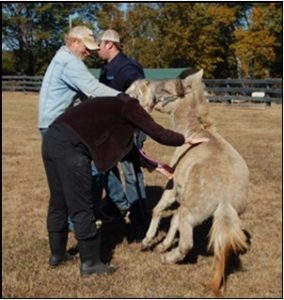 It is our hope at GERL that all of our members and many others who are also concerned about the growing number of unwanted horses in our state (and in our nation), are aware that each November, GERL partners with local veterinarians all over Georgia to provide low cost stallion castrations. Basically, the stallion owner pays $50 and GERL pays $50. The horses are transported to a designated location for the service. The veterinarians agree to perform the procedure for $100. There may be additional charges since a current tetanus immunization and Coggins are required preoperatively. Many stallion owners also request that “wolf teeth” be removed while the horse is anesthetized.
It is our hope at GERL that all of our members and many others who are also concerned about the growing number of unwanted horses in our state (and in our nation), are aware that each November, GERL partners with local veterinarians all over Georgia to provide low cost stallion castrations. Basically, the stallion owner pays $50 and GERL pays $50. The horses are transported to a designated location for the service. The veterinarians agree to perform the procedure for $100. There may be additional charges since a current tetanus immunization and Coggins are required preoperatively. Many stallion owners also request that “wolf teeth” be removed while the horse is anesthetized.
 One day in November of each year has traditionally been designated as “GERL Stallion to Gelding Day” ever since this very important part of the “GERL Get Well Plan” was implemented in 2010. Over time, our Castration Day has, of necessity, become Castration Month. Each participating vet or vet clinic still performs the low cost castrations on a certain day but they choose a day which best fits their schedule; therefore, the castrations are being performed throughout the month of November. Dates, locations, and times for each Castration Day are listed on the GERL Web Site (www.gerlltd.org). Stallion owners must make appointments directly with the vet most convenient to them.
One day in November of each year has traditionally been designated as “GERL Stallion to Gelding Day” ever since this very important part of the “GERL Get Well Plan” was implemented in 2010. Over time, our Castration Day has, of necessity, become Castration Month. Each participating vet or vet clinic still performs the low cost castrations on a certain day but they choose a day which best fits their schedule; therefore, the castrations are being performed throughout the month of November. Dates, locations, and times for each Castration Day are listed on the GERL Web Site (www.gerlltd.org). Stallion owners must make appointments directly with the vet most convenient to them.
This year, GERL received a $5000 grant from the American Society for Prevention of Cruelty to Animals (ASPCA) to help with the cost of this event. It is not the first time that ASPCA has donated to this important program and we are truly grateful.
Although, to have your stallion castrated during this event, is the most cost effective, GERL also helps with the cost of the surgery at any time during the year. GERL will pay $75 toward the cost of having your stallion castrated by the vet of your choice. For more information, please contact Marian Finco (Stallion to Gelding Coordinator) at mhfinco@aol.com.
I always attend the Castration Day at Countryside Hospital for Animals near Jersey, GA. I was joined this year by Leslie Lambert and Jacki Moore (our Volunteers of the Quarter). There, the surgeries are performed by Vet students from the University of Georgia School of Veterinary Medicine. The students are advanced students and are supervised one-on-one by Staff Vets from Countryside or Instructors from the Vet School at UGA. The students are very excited for this opportunity to practice their surgical skills and it is easy to see that they will all make outstanding practitioners in the future.
There were 12 stallions castrated at the clinic I attended at Countryside on November 19. This number included some darling Mini Horses and a couple of “very spirited” (wild!) donkeys. The surgery went well for each of the animals and they all went home to face a much better life for having had this experience.
Seventy-eight stallions were castrated during our Stallion to Gelding Month this year.
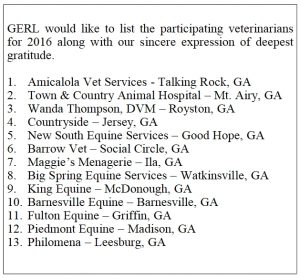
“Stallion to Gelding Day”, sponsored by GERL comes each year on the second Saturday in November. Patty Livingston and I met at Countryside Hospital for Animals near Jersey, GA. early that morning as we have for all of the years that the event has taken place. It was a sunny, crisp morning and as the attending veterinarians, UGA veterinary students, and the stallions (soon to be geldings), began to arrive, the excitement was palpable. The Countryside Vets are always willing to help with this very important GERL Program, the UGA Vet Students are very excited to obtain their first experience with castrating a horse, and the stallions are just excited to be horses on such a beautiful morning! I doubt that they (the stallions) know that the rest of their lives will be effected in a good way because their owners have made the very responsible decision to have them castrated.
This yearly event is sponsored by GERL in an effort to encourage the owners of stallions (including Mini Horses, ponies, and donkeys) to have them gelded. We are able to negotiate with many veterinarians over Georgia so that, after GERL pays part of the cost, stallion owners can have the procedure done for the extremely low cost of $50 per horse. This, in an attempt to prevent the over breeding of horses which has led to the overabundance of horses in our state. This overabundance has brought the value of horses to such a low point that those who cannot afford to own a horse, can easily obtain one. This most often leads to starvation and/or very poor living conditions for these poor horses.
This Stallion to Gelding Day was much like all of the other such events I have attended. All went well and that is the great news! It is still amazing to me to see the horses get up after general anesthesia and the surgery, walk around for a bit, and then load onto a horse trailer to go home within a very short time. I asked some of the stallion owners what this program meant to them. Many of them said that they would have eventually had their animals gelded anyway but this opportunity to save quite a bit of money, made them make it a priority to have it done on November 14th. After 73 years of observing human nature, I am certain that many of them would perhaps have put off getting it done until it just might have possibly resulted in the birth of an unwanted foal. All of the vets and vet students participating at Countryside were at the site from 8:30 AM until about 5PM. There were 13 stallions gelded and we all enjoyed a pizza lunch provided by GERL while we enjoyed a lovely day of doing a very good thing. Including the other sites all over Georgia, where the very same thing was going on, 72 stallions were gelded on that day!
Please join us in giving a BIG thanks to all of the equine vets who participated in this event this year: Amicalola Veterinary Service, Barnesville Animal Clinic, Barrow Veterinary Service, Big Springs Equine Medicine, Countryside Veterinary Service, Fulton Equine Clinic, King Equine Veterinary Service, New South Equine Medicine, Royston Animal Clinic, Town & Country Animal Hospital and Maggie’s Menagerie.
As is our custom, Anne Ensminger and I met at Countryside Animal Hospital in Jersey to set up a booth for GERL during the annual castration day. We didn’t have the GERL cargo trailer this year since we seldom sell merchandise at this event. We had brought hand warmers and blankets to take off the morning chill as we waited for the patients to arrive.
The UGA College of Veterinary Medicine students and vets were already there and waiting to get started. I noticed that there were more students participating this year than last. There were also a couple of male students in the mix which is more unusual than you might think. The entire group seemed interested to learn about GERL and the ways in which we help horses. They were all excited about the opportunity to perform surgery and several thanked us for providing the opportunity. I asked them how many had participated the previous year and there were none. I thought that was interesting.
As our Castration Day approached, I regretted that I had to let it be known that the event would have to be smaller this year. I wrote about our lack of funds for this program in our last newsletter and the response that followed was very gratifying. We were able to allow the participation of five additional veterinarians who had expressed an interest in helping this year. Because of the generosity of G.E.R.L. members, the participating Georgia veterinarians, many volunteers, and the UGA students and instructors, we were able to help with the castration of 96 stallions on November 8th. Thanks very much to all who did not hesitate to step up and donate to help make this happen. I also want to thank Dr. Rebecca Gimenez who graciously offered to cover any overage. It felt good to realize that there are others as passionate about the G.E.R.L. Castration Program as I.
G.E.R.L. is always very appreciative of the veterinarians who agree to host a clinic on our Castration Day each year. They perform castrations at the greatly reduced rate of $100.00 per stallion. The stallion owners pay half of that fee and G.E.R.L. pays the other half plus the cost of medications. The only extra charge to the horse owners is for a required tetanus inoculation if their horse has not had one recently.
This program was founded as part of the “G.E.R.L. Get Well Plan” and is our way of addressing the overpopulation of horses, a great contributor to the horse problems in our state.
Dr. Ava Griner Talmage, Amicalola Veterinary Services
Dr. Dan Carter & Dr. Billy Myers – Countryside Animal Hospital, Jersey
Dr. Dr. Ross Kittrell, New South Equine Medicine, Good Hope
Dr. Logan King, King Equine Vet Services, McDonough
Dr. Wanda Thompson, Royston Animal Hospital Royston
Dr. Mark Korb, Barnesville Animal Clinic, Barnesville
Dr. Eric Sjoberg, Dr. Brittany Bell and Dr. Jennifer Adams, Maggie’s Menagerie Veterinary, Ila
Dr. Jennifer Baker & Dr. Bill Baker, Equine Associates, Hawkinsville
Dr. Katie Lott-Ellis, Jacksonville Equine Associates, Waynesville
Dr. McCord, Bowdon Animal Clinic, Bowdon
Dr. Hagart, Town & Country Animal Hospital, Mt. Airy
Dr. Melissa Fulton, Fulton Equine, Spalding County
To my way of thinking, this is one of the most important programs that we sponsor and the GERL Board of Directors all join me in vowing that we will do all in our power to ensure that we continue to host this event every November.
This was our third year to host the Stallion to Gelding Castration Day and I was very grateful to the 18 equine veterinarians across the State of Georgia who volun-teered to participate by hosting a clinic at the reduced price of just $100 per horse. GERL would be paying $50 to the vets for each horse they castrated in addition to reimbursing them for the drugs they used during their clinic. I really wanted to beat our record of 141 castra-tions from last year, but would be happy with whatever number we could do. We had a lot of returning vets who had participated in the previous two years and were able to snag a few new ones as a result of a mass mail-ing that we had recently done to every large animal vet-erinarian in Georgia.
If you’re not a regular reader of the GERL newsletter you may be wondering why I make such a big deal out of such an event? That is simple. We have over ten million horses in this country and that number is grow-ing by approximately three hundred thousand every year! That is mind-boggling to me, but easily explains why you can buy a horse for as little as ten dollars to-day. If it is a stallion you can probably get it for free! Of course, who do you think typically buys a ten dollar horse or takes a free stallion? My experience for the past five years of “being in the trenches” of horse res-cue , they are usually living in squalor and are on wel-fare or some other type of government assistance. They have absolutely no idea how to care for a horse and un-fortunately for the horse, they seldom do.
In an effort to reduce the number of horses bred and born every year, GERL created and offers two differ-ent castration pro-grams: our Stallion to Gelding Castration Day; and our other Stallion to Gelding program where GERL will pay $75 towards the castration of any stallion in Georgia. The owner must fill out an application and the cost is whatever their personal vet charges for performing castra-tions. This program is particularly beneficial for equine owners who do not have a trailer or the ability to transport their stud to a clinic. In addition, GERL also pays 100% of the cost of cas-trating every stallion picked up by the Georgia Department of Agriculture (GDA) and offers this same service/support to local animal controls and law enforcement who agree to prosecute the owners of impounded equine.
Most of my friends would not be the least bit surprised to hear me say that GERL’s annual castration day is my favorite day of the whole year. After all, I am often referred to as “The Castration Queen” and I wear the title, proudly! But this year was a little different because I would be taking Sil-ver, my little GERL foster mini horse, to the clinic to be gelded. I have been fostering him since I picked him up in July and had been waiting for castration day which was the first step to getting him to his new “forever home”, which was already waiting.
I arrived at Countryside Animal Hospital in Jersey around 9:00 a.m. to find all of the UGA College of Veterinary Medicine Thenogenology students and vets already there and waiting to get started. Miss Anne arrived a few minutes later and Linda Kundell arrived shortly after her, pulling the GERL cargo trailer. We helped get the GERL booth set up with tables, chairs and all of the other necessities and went inside to get coffee and donuts.
By this time, several other clients had started to arrive with their stallions and I walked Silver over to an area in the large arena where he would be laid down (eventually). The two students who would be performing Silver’s castration, Erica Rodriguez and Ukachi Ugorji, UGA Sophomores, were very excited about the opportunity to operate. Dr. Richard Fayrer-Hosken would be assisting the girls with Silver and he had a former college roommate from Illinois who was also a vet, standing nearby. I snapped a few pictures and moved on to the other groups of students who were getting ready to lay down their first patients. Dr. Billy Myers was assisting one group while Dr. Dan Carter and Dr. Robert Stawicki, Clini-cal Assistant Professor at UGA, assisted the other two groups.
After hanging out at our booth for a while I thought I’d go back and check on how Silver was coming along, and much to my surprise, he wasn’t even down yet! In fact, he looked exactly as I had left him earlier, not the least bit wobbly. Dr. Fayrer-Hosken was sitting on the ground beside Silver and coaching the two slightly flustered students while he injected the fifth or sixth dose of twilight drugs. By this time, all of the other students were on their second horse, but Dr. Fayrer-Hosken continued to reassure them that Silver would eventually go down. Silver had attracted quite an audience by now and several of them exchanged stories of the perils of castrating minis and donkeys, which was quite entertaining.
Finally, he did go down, but he sure didn’t want to stay down! Dr. Stawicki came over and helped sit on him to keep him down while Erica and Ukachi prepared everything nec-essary to start the surgery. Erica actually performed the sur-gery and it was a beautiful thing. She did a marvelous job and the smile on her face was priceless! But, Silver wanted to jump up almost immediately after the surgery which had everybody surprised, except the veteran vets, of course. Fi-nally, he was allowed to get up and he was perfectly fine. In fact, you would have never guessed what he had just been through! Tough little creatures they are.
Speaking of minis and donkeys, I spoke to Dr. Ava Talmage a couple of days after her clinic up in Jasper and she told me that out of the twelve stallions she castrated at her clinic, most of them were mini donkeys and they had a really long day! Tamma Trump helped at Dr. Ava’s clinic and she men-tioned that they didn’t get out of there until after 7:00 PM!
It is so gratifying to be able to help make something happen that not only benefits many Georgia stallion owners, but also benefits the UGA students. We received a very nice thank you card from all of the UGA Thenogenology students and it made me realize how much they look forward to this event every year. It makes me proud to be a part of GERL.
GERL was not able to secure a large castration grant this year but tremendous thanks goes to Kel-Mac Saddle Club as well as to one anonymous donor who each gave large dona-tions earmarked for our castration program. We are very grateful to each of the participating veterinarians, their staffs, vet students and instructors from the UGA School of Veteri-nary Medicine, as well as the many GERL volunteers who came together to make this event a tremendous success by castrating 114 stallions this year!
Dr. Ava Griner Talmage, Amicalola Veterinary Services, Talking Rock
Dr. Billy Myers, Dr. Dan Carter & Dr. Richard Fayrer-Hosken – Countryside Animal Hospital, Jersey
Dr. Rhonda Veit and Dr. Ross Kittrell, New South Equine Medicine, Good Hope
Dr. Logan King, King Equine Vet Services, McDonough
Dr. Wanda Thompson, Royston Animal Hospital, Royston
Dr. Patricia Barnes, Union County Pet Hospital, Blairsville
Dr. Chandra Moxon and Dr. Mark Korb, Barnesville Ani-mal Clinic, Barnesville
Dr. Eric Sjoberg, Dr. Brittany Bell and Dr. Jennifer Ad-ams, – Maggie’s Menagerie Veterinary, Ila
Dr. Jennifer Baker & Dr. Bill Baker, Equine Associates, Hawkinsville
Dr. Katie Lott-Ellis, Jacksonville Equine Associates, Waynesville
Dr. Lois J. Lassiter, Budget Vet, Conyers
Dr. Chandra Moxon and Dr. Mark Korb, Barnesville Ani-mal Clinic, Barnesville
Dr. Robin Barrow, Barrow Veterinary Services, Social Circle
Dr. Charles Graham, Cairo Animal Hospital, Cairo
Dr. Hagart, Town & Country Animal Hospital, Mt. Airy
Dr. McCord, Bowdon Animal Clinic, Bowdon
Dr. Jennifer Gardner, Gardner Veterinary Services, Means-ville
Dr. Donna Wilder, Macon County Vet, Montezuma
It was April 16, the morning after another night of severe Georgia spring thunder storms, when a group of truly dedicated people gathered for a very unusual event. The sky was overcast, the temperature was cool, and the wind blew relentlessly. In spite of the weather, a group of excited students from the UGA College of Veterinary Medicine, one of their instructors, Dr. Richard Fayrer-Hosken, and the entire staff from Countryside Hospital for Animals near Jersey GA, gathered to join with GERL to put on an equine castration clinic.
GERL has been organizing these clinics all over Georgia for the past year. It is our feeling that this is an important avenue for us to pursue in our quest to find ways to reduce indiscriminate and irresponsible breeding of equine in our state. The way it works is that GERL negotiates a special price for each castration with local veterinarians. It is then agreed that GERL will pay half of the cost for each procedure and the stallion owner will be responsible for the balance. The result is a price that is hard to resist for owners of stallions which are not meant to be breeding animals.
This particular clinic was, by far our largest undertaking of this type to date. The doctors and staff at Countryside put forth an extreme effort to insure the meticulous organization and planning required to make such an event run smoothly. There were drugs and supplies to procure, advertisement, appointments to make, paperwork before, during, and after the clinic, and arrangements for UGA vet students to participate. It did not go unnoticed that the entire Countryside staff was present on a Saturday and cheerfully working overtime.
There were 13 equine safely and successfully castrated during the clinic. All surgeries were performed by junior and senior veterinary students under the supervision of Dr. Fayer-Hosken and the expert and experienced doctors from Countryside. The question of the day for the students was “What is the most dangerous part of this procedure?” Answer: Anesthesia. Thankfully, any danger from anesthesia was avoided. At one point during the day, there were five horses undergoing various stages of the procedure, with five teams of budding surgeons, instructors, and helpers working all at the same time!
GERL would like to express tremendous gratitude to Dr. Billy Myers and the entire Countryside staff of veterinarians, clinic personnel, and volunteers for their continuing support of our organization and for their hard work to insure the outstanding success of this event.
